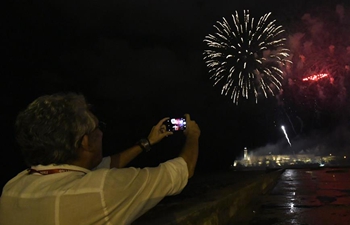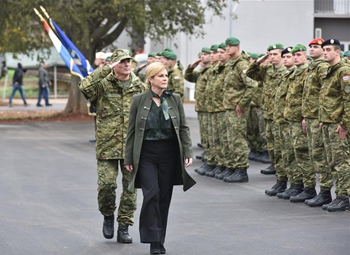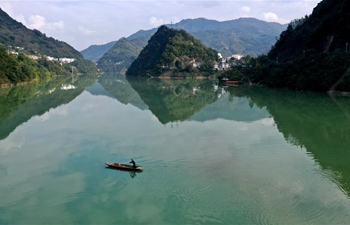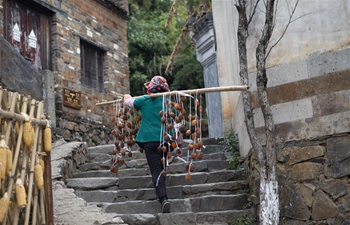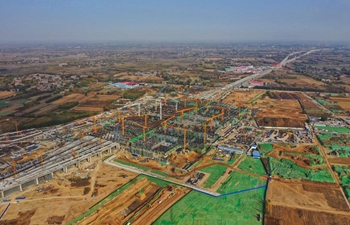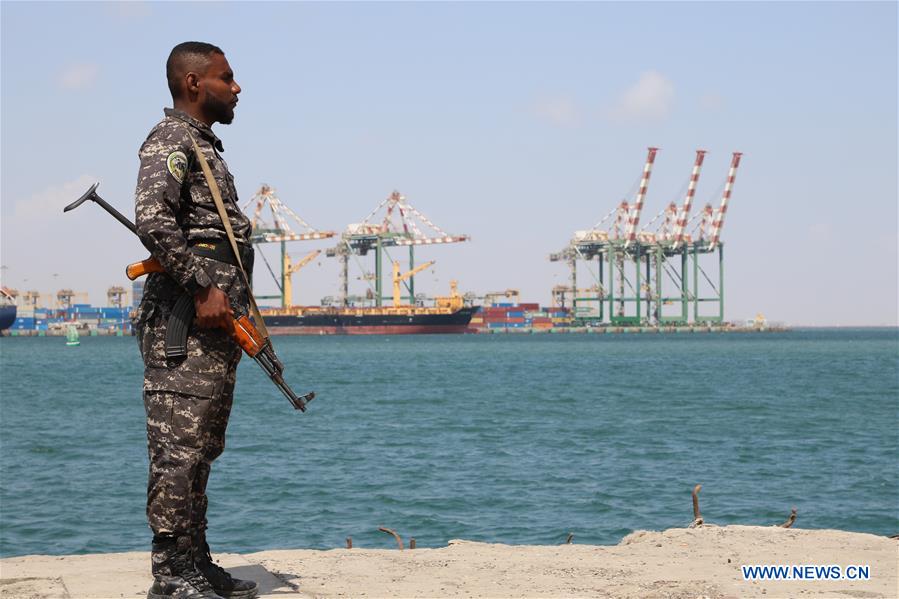 ?
?A newly-recruited soldier is seen at the main port of Aden, Yemen, on November 16, 2019. Units of the newly-recruited security forces began securing a number of state facilities in Aden on Saturday, a government official told Xinhua. (Photo by Murad Abdo/Xinhua)
ADEN, Yemen, Nov. 16 (Xinhua) -- Units of the newly-recruited security forces began securing a number of state facilities in the southern port city of Aden on Saturday, a government official told Xinhua.
The local government source said on condition of anonymity that Yemen's government and the Southern Transitional Council (STC) formed new security units tasked with securing the state institutions in Aden.
"After the signing of Riyadh deal between the two warring rivals, there will be unified security units tasked with protecting the state institutions jointly with direct supervision from the new government," he said.
He added that the newly-recruited security units began deployment in and around a number of key state institutions in Aden in accordance with the provisions of the Riyadh deal.
Yemeni experts said that the process will pave the way for de-escalation and peace between the two warring rivals over the control of Aden.
They also said that "the unification of the security forces tasked with guarding the country's institutions is a good step to prevent military conflicts in the city."
In August, forces loyal to the Aden-based STC engaged in intense street fighting with the government forces over the control of Aden and other neighboring southern provinces.
The STC seized all the state institutions after defeating the Saudi-backed Yemeni government forces during Aden's battles.
Saudi Arabia persuaded the STC and Yemen's government to hold reconciliation talks, which succeeded in reaching a deal to form a new technocrat cabinet of no more than 24 ministers.
The main points of the deal also included the return of the exiled Yemeni government to Aden within seven days, and the unification of all military units under the authority of the ministries of interior and defense.
The Saudi-brokered deal excluded the Iranian-backed Houthi rebels who are still controlling Sanaa and other northern provinces of the war-torn Arab country.
The impoverished Arab country has been locked in a civil war since late 2014.




